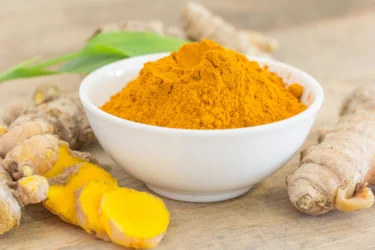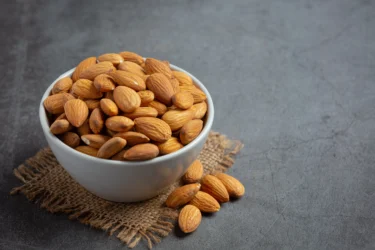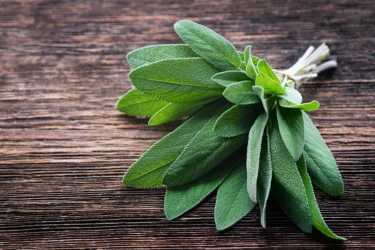Simple Home Remedies for Swollen Gums
By Dr Smita Barode +2 more

Get,

to manage your symptom
Get your,


4 Cr+ families
benefitted

OTP sent to 9988776655



You’ve successfully subscribed to receive
doctor-approved tips on
Whatsapp

Get ready to feel your best.

Hi There,
Download the PharmEasy App now!!


Register to Avail the Offer
Send OTPBy continuing, you agree with our Privacy Policy and Terms and Conditions

Hi There,
Sign up on PharmEasy now!!
Trusted by 4 crore+ families

OTP sent to 9988776655



You have unlocked 25% off on medicines




Code: NU25
By Dr Smita Barode +2 more
Table of Contents
Swollen gums might feel abnormally bulging and protruding. It is a common problem where one or many triangle-shaped areas of gum between teeth swell. Gum diseases, also called periodontal diseases, affect the gums supporting the teeth. Swelling in the gums can be a symptom of underlying gum diseases, like gingivitis1.
If you have swollen gums, you should get help from a dentist to get a diagnosis and treatment. You can also try home remedies to take care of the swelling at home. Read on to find some herbs and remedies to help take care of swollen gums at home.

The most common cause of swollen gums is bacterial plaque, a thin layer of bacteria. Plaque results in various conditions of the gums, like gingivitis and periodontitis. These conditions can give you red and swollen gums3.
Swollen gums can also be a result of1:
Swollen gums can be a symptom of an underlying health condition like gingivitis. Features of swollen gums include:
Periodontitis is the progressive stage of gingivitis, which occurs if gingivitis is left untreated. Periodontitis is characterised by symptoms like2:
Here are some natural remedies that you can use to take care of your swollen gums at home. You should try the one that works best for you. These remedies involve some commonly found herbs that you can easily find in your house.

Turmeric has anti-inflammatory activity, which might help in reducing gum swelling. Turmeric is also a good pain-relieving agent, which might aid in pain relief. You can use haldi or turmeric to take care of your gums. Make a paste using turmeric, salt, and some mustard oil. You can apply this paste to teeth and gums to get rid of dental problems5. However, if you feel any irritation after using it, you should immediately rinse it off.

You can grind some black pepper to make powder and use this powder with mustard oil to make a paste. This paste can be used to massage the teeth and gums to steer clear of dental problems like swollen gums5.

Almonds can be used as a remedy for gum problems. You can use the shell powder of almonds to take care of gum diseases. To make the powder, you can burn the shells of almonds, powder them and use them as and when required as a tooth powder5.

The antibacterial properties of green tea might help get rid of swollen gums4. You can try adding a few cups of green tea to your diet to help with swollen gums. However, avoid using this remedy if you are allergic to caffeine.

Sage is known to have antioxidant benefits, which might help soothe swollen gums8. You can use sage to make a mouthwash of your own by putting some fresh sage leaves into boiling water. Boil the leaves for some time before straining them. You can store this solution and use it as a mouth rinse. If you don’t find fresh leaves, you can use dried leaves as well.

The inflammation-reducing benefits of aloe vera make it an excellent natural remedy for swollen gums8. You can directly use pure aloe vera juice as a mouth rinse. You can also massage aloe vera gel onto the gums. Make sure to buy the aloe vera juice from a good source. Also, check if you have any allergic reaction to aloe vera; in such cases, avoid using it.

Clove oil helps prevent the growth and formation of bacteria, thereby preventing infections. Clove is also a good pain reliever and might help with pain associated with swollen gums8.To use clove for gums, mince some cloves, and use a cotton swab or cotton ball to apply the powder to your gums. Let the powder sit on the gums for some time. Rinse the clove off your gums once done.

Amla fruits contain vitamin C in ample amounts. Vitamin C is a potent antioxidant beneficial in many health conditions. You can include one fresh amla fruit in your everyday diet to help with swollen gums. You can also use amla powder by mixing it with some water. You can drink this water to take care of your swollen gums.
If you are suffering from allergies to the remedies mentioned above, you should avoid using them. Instead, choose a remedy that works best for you.

Here are some simple tips that can help you manage gum problems:
Also Read: Causes and Home Remedies for Shortness of Breath
Swollen gums are a common problem that some people may ignore. However, if the changes in your gums, the redness and swelling last for more than two weeks, you need to seek medical help.
Also, visit your dentist if your gum problems are associated with:
Also Read: Best Home Remedies for Burning Feet
Swelling in the gums is a common problem and can occur at any age. Most people often neglect gum problems, as sometimes there is no pain involved. However, timely management is necessary to prevent the problem from worsening. Some common household ingredients like turmeric, black pepper, clove, and amla can be used to take care of swollen gums at home. You can also make herbal mouthwashes at home using dried or fresh leaves of sage. Make sure to take into consideration any allergies before using such home remedies. Also, if the swelling in the gums becomes painful and is accompanied by bleeding when you eat or drink, make sure to get a consultation from a dentist.
Also Read: Simple Home Remedies For Dry Throat
Natural home remedies that you can make use of to take care of swollen gums are black pepper powder, turmeric powder, clove, and amla. You can also use aloe vera, sage leaves, and green tea to relieve swelling in the gums.
Yes, swollen gums can also bleed. This bleeding might become more evident when you eat or brush your teeth3. You can contact a dentist to get a better diagnosis of your problem.
Gum problems can be prevented by maintaining good oral hygiene. Practices like brushing the teeth two times a day, using a good toothpaste, and using dental floss might help prevent gum problems from developing7.
Yes, swollen gums can signify health conditions like gingivitis, but you need to consult with a doctor or dentist to get a proper diagnosis.
If your swollen gums do not heal within two weeks and cause bleeding and pain, you should immediately contact a dentist.
Yes, you can use turmeric for swollen gums. You can use turmeric powder and apply it to your gums to get rid of swollen gums. Turmeric is known to reduce inflammation and swelling as it has anti-inflammatory benefits. However, if you are allergic to turmeric, you should avoid its use. Also, if turmeric use does not work out and the swelling persists, seek medical help.
The antioxidant properties in sage leaves are helpful in many health problems. You can make a herbal mouthwash using sage leaves. Drop some fresh or dried sage leaves in boiling water, and let them simmer for some time. Cool it and store it. Use this mouthwash to take care of swollen gums.
Yes, salt water can help swollen gums. Rinsing the mouth with warm salt water (saline solution) can reduce inflammation and soothe gum tissues. The saltwater rinse can also help to cleanse the area and promote healing. However, it’s essential to maintain regular dental care and consult a dentist if the swelling persists or worsens.
Yes, certain foods high in sugars or acids can contribute to gum irritation and inflammation. Smoking or using tobacco products can also lead to gum problems. Adopting a balanced diet and avoiding harmful habits can promote good gum health.
Yes, certain vitamin deficiencies, particularly vitamin C deficiency, can lead to gum problems, including swollen gums. Vitamin C plays a crucial role in maintaining gum health, and inadequate intake can weaken gum tissues. A balanced diet rich in vitamins and minerals is essential for gum health.
1. Gums – swollen: MedlinePlus Medical Encyclopedia [Internet]. [cited 2022 May 6]. Available from: https://medlineplus.gov/ency/article/003066.htm
2. Healthdirect Australia. Gingivitis. Symptoms, Treatments, Complications and Prevention | Healthdirect. [cited 2025 May 19]. Available from: https://www.healthdirect.gov.au/gingivitis
3. Gum disease – Better Health Channel [Internet]. [cited 2022 May 6]. Available from: https://www.betterhealth.vic.gov.au/health/conditionsandtreatments/gum-disease
4. Agarwal G, Chatterjee A, Saluja M, Alam M. Green tea: A boon for periodontal and general health. Journal of Indian Society of Periodontology. 2012 [cited 2025 May 19]. Available from: https://pmc.ncbi.nlm.nih.gov/articles/PMC3459493/
5. Ayush Division. Ayurveda offers Herbal healing. Available from: https://www.esic.nic.in/attachments/publicationfile/7d11b02e5abb4717d53b4ce05efabd21.pdf
6. Gum disease – NHS [Internet]. [cited 2022 May 6]. Available from: https://www.nhs.uk/conditions/gum-disease/
7. Gingivitis: MedlinePlus Medical Encyclopedia [Internet]. [cited 2022 May 6]. Available from: https://medlineplus.gov/ency/article/001056.htm
8. Rani N, Singla RK, Narwal S, Tanushree N, Kumar N, Rahman MdM. Medicinal plants used as an alternative to treat gingivitis and periodontitis. Evidence-based Complementary and Alternative Medicine. 2022 [cited 2025 May 19]. Available from: https://pmc.ncbi.nlm.nih.gov/articles/PMC10630018/
Disclaimer: The information provided here is for educational/awareness purposes only and is not intended to be a substitute for medical treatment by a healthcare professional and should not be relied upon to diagnose or treat any medical condition. The reader should consult a registered medical practitioner to determine the appropriateness of the information and before consuming any medication. PharmEasy does not provide any guarantee or warranty (express or implied) regarding the accuracy, adequacy, completeness, legality, reliability or usefulness of the information; and disclaims any liability arising thereof.
Comments

Leave your comment...
You may also like
Comments